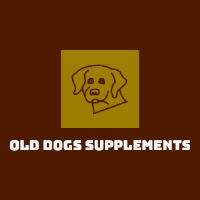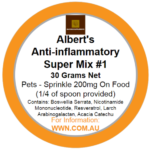Resveratrol is currently the rage as a supplement for humans. Since David Sinclair shared that this natural compound (also found in red wine!) with claims it can boost our immune and cardiovascular systems plus decrease the chances of stroke and cancer – it is top of the list for most of us in the “anti-aging” boat. Many scientists are also testing the use of RES for both Covid and the after effects that some people get (“long-covid”), and it looks promising.
Resveratrol was used in traditional Japanese and Chinese medicine for problems with inflammatory, allergic, hypertensive (high blood pressure) and lipid issues (cholesterol unbalanced).
What Is Resveratrol and What Makes It Useful?
Resveratrol is made by plants to protect themselves from attach by bacteria, viruses, fungus and also from water loss. Famously, Resveratrol is found in grape skin – which can ring a warning bell because grapes are bad for dogs. But luckily Resveratrol does not contain the chemicals that are toxic to dogs, and it is safe to give to your dog. In fact, much of the research that shows RES is useful has been done on dogs.
Some Resveratrol Studies On Dogs
- Evaluation of Resveratrol Supplementation on Laboratory Animals, Cats, Pigs, Horses, Dogs, Cattle, and Birds. This is a “review” study – it is worth reading, but we aware it has a lot of technical language – but you CAN figure it out. I will add some relevant parts below.
- “Research has shown some therapeutic effects of resveratrol ranging from antioxidant, anti-inflammatory, cardioprotective, antiatherogenic, antiaging, antiplatelet aggregation, anticancer, antidiabetic, antitumor, and immunomodulatory activities. In laboratory animals, benefits of resveratrol comprise antitumor effects while in cats it has shown to improve hepatic function. In pigs, the antibiotic and antiviral effects of resveratrol have been illustrated. The anti-inflammatory and antioxidative properties of resveratrol in horses and cattle were also reviewed. The supplement was shown to be useful as an antibiotic and an aid in improving alertness in dogs. Resveratrol also showed to increase growth performance in birds. It is therefore concluded that use of resveratrol is a potent aid in improving animal production and health.”
- Rats and mice: RES helped protect heart cells and cardiovascular system from free radical cell death or damage (from obesity and hypertension).
- A recent study demonstrated resveratrol to decrease liver tumors, while increasing lymphoma and possibly solid tumors.
- Rats: A study on rodent models showed that, oral administration, topical application, and injection of resveratrol inhibited the development of chemically-induced cancer at many sites, including gastrointestinal tract, liver, skin, breast, prostate, and lung. The anticancer effects of resveratrol in rodent models involved the reduction of cell proliferation, the induction of apoptosis, and the inhibition of angiogenesis, tumor growth, and metastasis.
- “The benefits of resveratrol for memory and prevention of neurodegenerative diseases has been documented in laboratory animals.
- “Resveratrol prevented the increase in lipid oxidation, increased catalase activity, and increased MnSOD activity in exercised muscles from aged mice. These data show that dietary resveratrol suppresses muscle indicators of oxidative stress in response to isometric contractions in aged mice.” (link) As my initial interests in supplementation was for Albert (our “old” dog) – this effect of RES in this study is very important, and why we have added RES to Albert’s supplement protocol. The increase in glutathione levels is very significant, as this is one of the major anti-oxidants in mammals, and is the key to anti-aging. RES also reduced hydrogen peroxide by 15% in the muscles of “old” mice – also a powerful effect. (Here is the link to the full article)
- RES suppressed the aged-associated decline in physical performance in aged mice. (These results suggest that the intake of resveratrol, together with habitual exercise, is beneficial for suppressing the aging-related decline in physical performance and that these effects are attributable, at least in part, to improved mitochondrial function in skeletal muscle.) Link.
- Cats: “Their findings showed that pretreatment with resveratrol reversed changes in As2O3-induced morphological and liver parameters and resulted in a significant improvement in hepatic function. Resveratrol administration also improved the activities of antioxidant enzymes and attenuated As2O3-induced increases in reactive oxygen species and malondialdehyde production.” This translates as improved antioxidant activity that reduced free radicals = GOOD.
- Pigs
- Effective potential as an alternative for antibiotics for weaning stress.
- Suppressed leucocyte count (anti-inflammatory value of RES
- RES inhibits the H1N1 “Swine Flu” virus.
- RES antiviral effect on African Swine Fever Virus and Rotavirus
- Piglets had better immune responses when given RES
- Horses
- “RES treatment (1 g/d) in 20 old horses for 4 weeks decreased equine inflammatory cytokine production both in vitro and in vivo.” This means that RES has potential in treatment of both acute and chronic inflammation in horses. “Trainers and horse owners have observed an improvement in health, comfort and performance in horses receiving resveratrol therapy. Reports that RESl reduces gene expression of inflammatory mediators to allow horses move comfortably during aging, training and competition.”
- “Daily resveratrol administration improves energy metabolism through its effects on mitochondria, the body’s cellular power house”.
- “Research has shown some therapeutic effects of resveratrol ranging from antioxidant, anti-inflammatory, cardioprotective, antiatherogenic, antiaging, antiplatelet aggregation, anticancer, antidiabetic, antitumor, and immunomodulatory activities. In laboratory animals, benefits of resveratrol comprise antitumor effects while in cats it has shown to improve hepatic function. In pigs, the antibiotic and antiviral effects of resveratrol have been illustrated. The anti-inflammatory and antioxidative properties of resveratrol in horses and cattle were also reviewed. The supplement was shown to be useful as an antibiotic and an aid in improving alertness in dogs. Resveratrol also showed to increase growth performance in birds. It is therefore concluded that use of resveratrol is a potent aid in improving animal production and health.”





